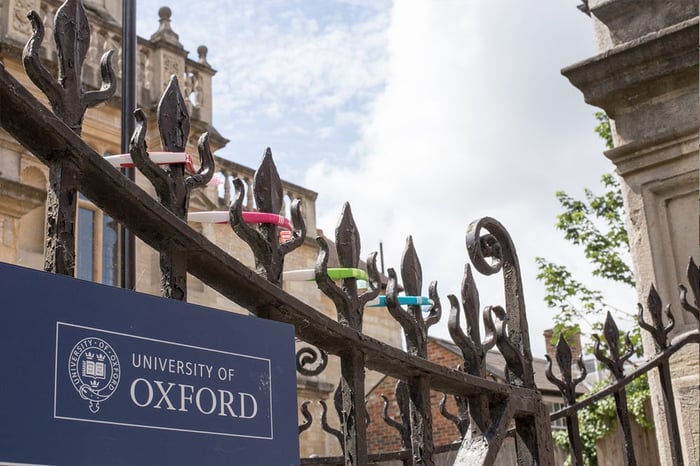
Medicine Schools without UCAT
Whilst the UCAT is the most commonly required aptitude exam by medical schools in the UK, as well as some in Australia, New Zealand and Italy, it is not a generic requirement that you need to fulfil in order to be eligible to apply to medicine in these countries. You may find yourself interested in certain medical schools only to find out that they do not require you to sit the UCAT. The number of such medical schools is low, and the chances that all your choices of universities will have the same requirements - even lower. That’s why it is still a good idea to have looked into it and have a good understanding of what it entails early on, should you find yourself having to sit it once you have decided on your medical schools of choice. We have compiled a list of UK medical schools that do not require a UCAT score in alphabetical order, and have indicated if and what alternative examination methods they have implemented in their selection process.
Brighton and Sussex
Brighton and Sussex is one of the handful medical schools in the UK that requires the BioMedical Admissions Test (BMAT) instead. The BMAT is quite different from the UCAT in that it incorporates not only an aptitude assessment, but also scientific knowledge and writing skills. Brighton and Sussex scores your BMAT performance out of 28 marks, awarding you 9 marks for Section 1, 9 marks Section 2 and 5 marks for each element of Section 3. All applicants’ scores are then ranked and invited to interviews in order. The cut-off score will vary each year, depending on applicants’ performance, but data for 2020 shows that Brighton’s cut-off for interview was 14.7, which was almost a 1.5 marks drop from the year before. Remember that these statistics should be used for indicative purposes only and do not have any predictive value.
Buckingham
The University of Buckingham is only one of the two medical schools on this list that do not require an additional assessment exam for entry to their programme. According to the official website, decision on shortlisted applicants for interview is made based on your A-levels or IB results, or on your classification if you have a previous degree in a discipline related to medicine. If you have been successful in obtaining an interview, the decision on whether you have been successful in obtaining a spot for the medical course will depend solely on your performance at the interview.
Cambridge
Similarly, Cambridge’s assessment format is also the BMAT that pertains to all standard course applicants, including those applying to mature colleges. As Cambridge has traditionally focused on assessing not only its applicants’ communication and problem solving skills, but also their scientific knowledge and aptitude, it is no surprise that the assessment of choice for this medical school incorporates elements of scientific examination. Cambridge’s admission board uses your BMAT score in conjunction with the rest of your application in their decision to offer interview slots and subsequently - places on the course. Whilst their official webpage does not provide a clear cut-off or ranking system used, they do advise that higher BMAT results have a higher chance of an interview invitation.
Imperial
Imperial is another medical school that requires BMAT to have been taken during the year of application as part of its admissions criteria. Imperial does use cut-off scores to decide, in conjunction with the rest of your application, who will be invited to interview, but similarly to Brighton, this number changes year on year. As a guide, the 2019 entry requirements for home students were a minimum of 3.5 marks in Section 1 and Section 2 each and a minimum sum of scores for these two sections of 8.6, with a minimum of 2.5C in Section 3. For international applicants, these numbers were 4.0 for Section 1 and Section 2 each, with a total minimum sum of the two of 10.0 and a minimum of 3C in Section 3.
Lancaster
The next school on the list to favour the BMAT over UCAT is Lancaster University. You will be expected to sit the exam in November, which happens after your UCAS application has been submitted - this can be a very positive thing, as it allows you to focus on one element of the application process at once, but it can also be challenging, as you might find that the few weeks between the UCAS deadline and the BMAT sitting are not enough for revision, incentivising you to begin your preparation earlier than that. Lancaster provides no further information on how it uses BMAT scores to send interview invites, though it certainly is a factor of consideration alongside the remaining aspects of your application.
Leeds
Leeds also doesn’t accept the UCAT an assessment prior to applying to medicine but that you sit the BMAT either in September or November of the year of your application cycle. Leeds’ official website does not provide detailed information on how it uses the BMAT to decide who will get an interview invitation, but stipulates that a decision is made based on all academic factors at once, including not only your BMAT score, but your past and predicted grades, too. It is likely, therefore, that successful applicants further invited to interview, are ranked from a combined score made up of all these selection criteria.
Oxford
Oxford medical school requires its candidates to have sat the BMAT in order to be considered. Whilst no exact approach towards shortlisting candidates has been outlined by their admissions office online, according to the official webpage, shortlisting occurs on the basis of combined BMAT and GCSE performance, as well as any other information from the candidate’s application. It is of note, however, that while the BMAT is available to sit in September or November each year, Oxford’s undergraduate medicine programme does not accept BMAT results from the September sitting - so make sure you read all the fine print well in advance if you are planning on applying in order to ensure that you comply with all rules thoroughly.
Swansea
Swansea offers a 4 year full time medicine course, which is designed for graduates with previous degrees, and as such, it has a fairly unique set of entry requirements from other, standard, undergraduate entry programmes. As you already probably suspect, Swansea doesn’t require the UCAT, hence its name on this list, but it curiously does not require the BMAT either! All applicants to the Swansea medical course must, however, sit the GAMSAT, short for Graduate Medical School Admissions Test. GAMSAT was in fact developed by an Australian consortium, but is used by medical schools in Australia, Ireland and the UK. A mixture of assessments, GAMSAT aims to measure your reasoning abilities and judgment calls, similarly to the UCAT (think of the Situational Judgment component), but it also tests scientific knowledge, just like the BMAT - though in the former, this is suited for graduates of prior scientific degrees. Swansea’s cut-off for consideration is a minimum total score at the GAMSAT of 50, with a minimum score of 50 in Paper 3, the Reasoning in Biological and Physical Sciences. Those who have scored above the cut-off are therefore invited to interview, but this number changes annually, depending on overall performance. Interestingly, for international students Swansea also accepts the MCAT, an exam much more widely sought by medical programmes in the USA.
UCLan
University of Central Lancashire’s medical course is one of the very few courses in the UK that does not require an additional assessment, such as the UCAT and the BMAT. Your application is entirely considered based on the remainder of your UCAS application, including grades and personal statement, but does not place any weight on any further aptitude exams that you may have sat for other medical courses. Despite this, you will probably still have to sit at least one such exam, depending on the rest of your choices, as UCLan is fairly unique in this aspect, so it will be a struggle to make a list of medical course choices based on lack of further assessment requirements.
UCL
This list finishes off with once again the second most popular assessment exam required by medical schools in the UK - the BMAT. The BMAT is required by UCL’s medical course from all types of applicants, whether home or international. The entry requirements do not further specify in what way the BMAT will be used to select shortlisted candidates for interviews, but it is likely that your score will be one of the several components looked at when considering your application.
This is the end of our comprehensive list of all ten medical schools across the UK which do not require sitting the UCAT. As you can see, the number is large enough to make a comprehensive selection of four choices that would not require you to sit multiple tests and focus only on the BMAT instead (or with GAMSAT, too). Whilst certainly possible, however, we don’t recommend choosing medical schools on the sole basis of their entry requirements, if they don’t fit your needs and preferences of where you’d like to spend the next 4-6 years studying medicine. Here at theMSAG we have a wide variety of tools and strategies to help with any and all requirements that you might find yourself facing - from our Live online UCAT course and a UCAT Question Bank to BMAT tutoring with experienced and highly achieved tutors. We hope this was useful but for any further questions or concerns, don’t hesitate to contact us at [email protected].



